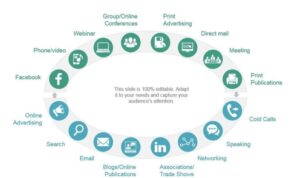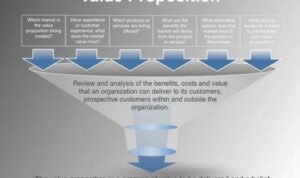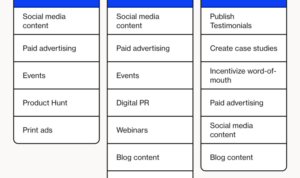Kicking off with Budgeting for Entrepreneurs, this topic is all about helping entrepreneurs navigate the tricky waters of financial planning and success. From understanding the importance to creating a solid plan and managing cash flow, this guide has got you covered.
Understanding the Importance of Budgeting for Entrepreneurs

Budgeting is a critical aspect for entrepreneurs as it helps them plan and manage their finances effectively. Without a budget in place, it can be challenging to track expenses, set financial goals, and make informed decisions for the business.
Effective budgeting can positively impact a business in various ways. For instance, it allows entrepreneurs to allocate resources efficiently, prioritize spending based on business needs, and identify areas where cost-saving measures can be implemented. By having a clear budget, entrepreneurs can also better forecast cash flow, manage debt, and ensure the long-term financial health of the business.
On the other hand, not having a budget can pose risks for entrepreneurs. Without a budget, it is easy to overspend, lose track of expenses, and run into financial trouble. This can lead to cash flow problems, missed opportunities for growth, and even business failure in the worst-case scenario. Therefore, having a budget is crucial for entrepreneurs to stay on track financially and achieve their business objectives.
Creating a Budgeting Plan

Creating a budgeting plan is crucial for entrepreneurs to effectively manage their finances and ensure the success of their business. By following a structured approach, entrepreneurs can develop a comprehensive budget that aligns with their financial goals and objectives.
Steps in Creating a Comprehensive Budget
- Identify Income Sources: Determine all potential sources of income for your business, including sales, investments, and other revenue streams.
- Estimate Expenses: Make a list of all expenses, including fixed costs like rent and salaries, as well as variable expenses such as utilities and marketing costs.
- Set Financial Goals: Define clear and achievable financial goals that will guide your budgeting plan and help you track your progress.
- Create a Budget Template: Use tools like Excel or accounting software to create a budget template that Artikels your income, expenses, and projected cash flow.
- Monitor and Adjust: Regularly review your budget, track your actual income and expenses, and make adjustments as needed to stay on track.
Tools and Software for Budget Creation
- QuickBooks: A popular accounting software that helps entrepreneurs manage their finances, track expenses, and create budgets.
- FreshBooks: Another cloud-based accounting software that simplifies budgeting and financial reporting for small businesses.
- Excel: A versatile tool that allows entrepreneurs to create custom budget templates and analyze financial data effectively.
Importance of Setting Realistic Financial Goals
Setting realistic financial goals within a budgeting plan is essential for entrepreneurs to stay motivated and focused on achieving success. By establishing clear objectives and benchmarks, entrepreneurs can track their progress, make informed decisions, and adapt their strategies to reach their financial targets.
Monitoring and Adjusting Budgets
Regularly monitoring a budget is crucial for entrepreneurs to stay on track with their financial goals and make informed decisions about their business operations. By keeping a close eye on expenses and revenues, entrepreneurs can identify any deviations from the budget and take corrective actions promptly.
Tips for Tracking Expenses and Revenues
- Use accounting software or apps to record all financial transactions in one place for easy tracking.
- Categorize expenses and revenues to analyze where the money is coming from and going to.
- Review financial statements regularly to ensure accuracy and identify any discrepancies.
- Compare actual expenses and revenues against the budgeted amounts to track variances.
Adjusting Budget Based on Financial Performance
- Identify areas where actual expenses exceed budgeted amounts and find ways to cut costs or reallocate resources.
- Look for opportunities to increase revenues through marketing strategies or product/service improvements.
- Consider updating the budget periodically to reflect changes in the business environment or financial goals.
- Consult with financial advisors or mentors for guidance on adjusting the budget effectively.
Managing Cash Flow
Managing cash flow is crucial for entrepreneurs as it involves monitoring the movement of money in and out of the business. Cash flow management is directly correlated with budgeting, as a well-planned budget helps in controlling expenses and maximizing revenue, ultimately impacting the cash flow of the business.
Optimizing Cash Flow within a Budgeting Framework, Budgeting for Entrepreneurs
- Set clear payment terms with customers and suppliers to ensure timely payments and receipts.
- Monitor inventory levels to avoid overstocking or stockouts, which can tie up cash unnecessarily.
- Negotiate favorable terms with vendors and seek discounts for early payments to improve cash flow.
- Regularly review and adjust your budget to align with changing market conditions and business needs.
Importance of Forecasting Cash Flow
- Forecasting cash flow helps in anticipating financial challenges and preparing for them in advance.
- By forecasting cash flow, entrepreneurs can identify potential cash shortages and take proactive measures to address them.
- It enables better decision-making regarding investments, expenses, and revenue-generating activities.
- Regularly updating cash flow forecasts based on actual performance can help in staying on track with financial goals.





